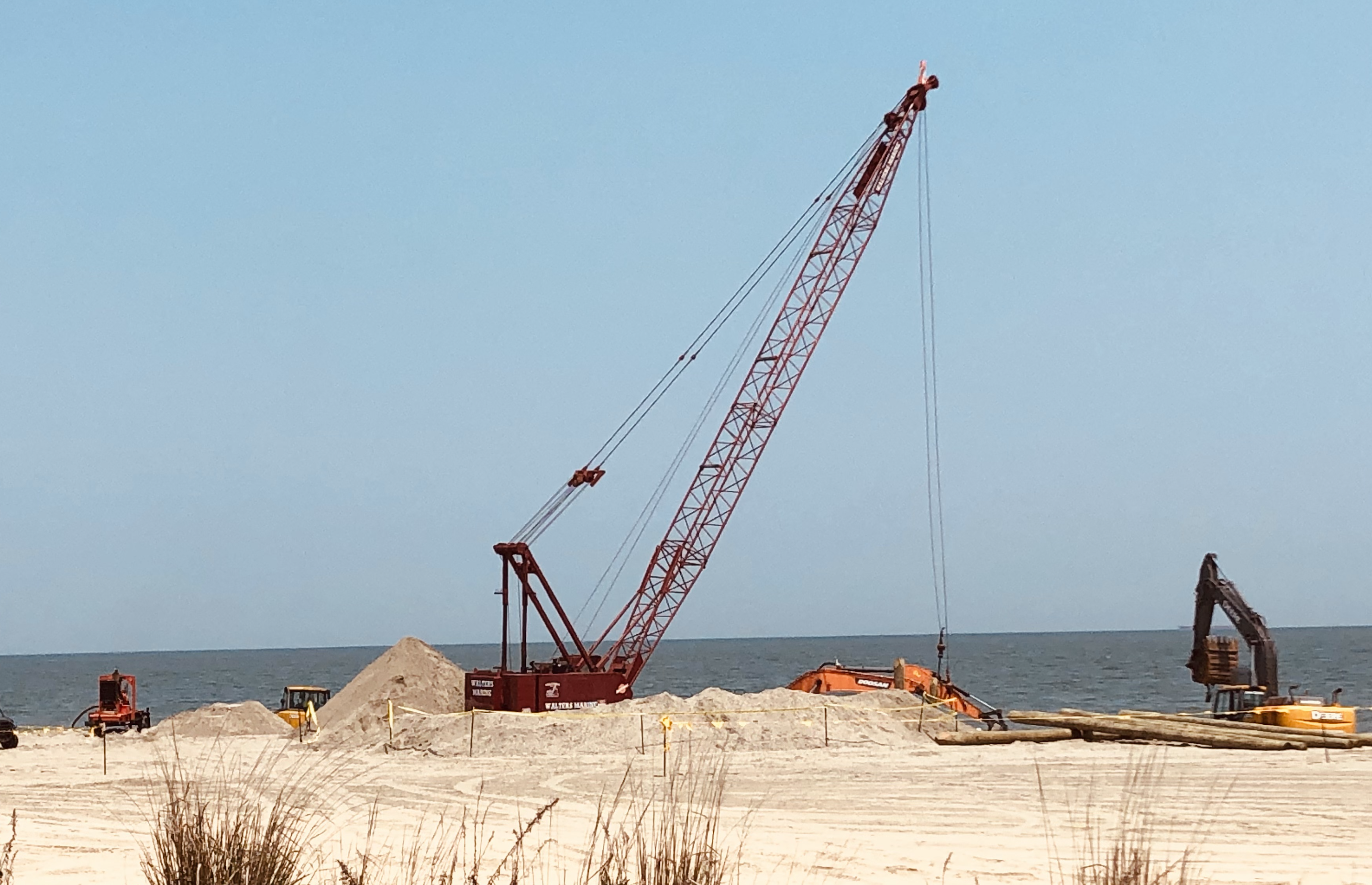A week in a big, old and quirky house in Rehoboth Beach, Del. overlooking the Atlantic Ocean brought great joy and personal refreshment to my wife and me two weeks ago. We were comfortable and content.
And, yes, we were just blocks away from President Biden’s beach home. That matters little to us. But readers may wonder.
During our stay, we found it fascinating to watch a major beach replenishment, necessitated by winter storms that eroded the seashore. I learned that the project, encompassing the shoreline from Rehoboth Beach to Fenwick Beach, Del., costs $23.8million in state and federal money.
The Rehoboth Beach portion entails the pumping of 300,000 cubic years of sand from the ocean bottom. We easily could see the pumping ships offshore and beach equipment to spread and smooth the sand.
When I served as deputy treasurer of Maryland, I learned about the millions and millions of dollars spent over the years on beach replenishment in Ocean City, Md. The obvious question is why. Erosion is unavoidable. Winter storms are unpredictably damaging.
The answer is simple: tourism.
 If ocean-goers are to continue investing their vacation time and money, they expect pristine, wide beaches. The inherent uselessness of expensive beach nourishment is irrelevant. Ocean City is an essential economic development resource in Maryland; tax dollars are plentiful.
If ocean-goers are to continue investing their vacation time and money, they expect pristine, wide beaches. The inherent uselessness of expensive beach nourishment is irrelevant. Ocean City is an essential economic development resource in Maryland; tax dollars are plentiful.
Beach replenishment every four years in Ocean City costs nearly $10 million, according to a Google search. The initiative began in 1988, funded by the federal government, the state, Ocean City and Worcester County.
As I watch the waves roll in, slamming Rehoboth Beach and prompting memories of family affinity in a 1929-vintage beach home owned now by descendants of a Wilmington, Del. lumber yard-owning family, I ruminate about the inexorable passage of time. I think back about hours and hours sitting on the beach, enabling our two daughters to experience the wonders of the ocean and the tranquillity of the beach.
We impressed upon them the need for caution. Implicitly, we instilled family togetherness.
These memories are precious. They also are painful. You must accept aging. We remember our younger years with great detail, and some yearning.
When not talking about our children and grandchildren, our next dinner meal, the erratic quality of Grotto pizza, the bothersome traffic on Route 1 (Ocean Highway), increased visibility of body art, the delectable Thrasher’s fries and welcome changes to a rental house we feel we own—my wife and her sister and brother would switch inevitably to remembrances of my deceased in-laws.
The conversation is heartfelt, sometimes humorous. “I didn’t know that” is a frequent comment.
As would be expected, each sibling interacted differently with a parent. Funny stories mix with serious ones. My in-laws celebrated 40th and 50th anniversaries in the house by the sea. Stories about my in-laws’ friends abound during our conversation.
While enjoying our respite, we remained aware of current events. Debt ceiling negotiations, the death of professional football star Jim Brown, the Preakness and the high cost of cars hovered above us in the turbulent world of journalism.
Despite the cool weather, we felt replenished. We always are eager to arrive and reluctant to leave our vacation cocoon.
Columnist Howard Freedlander retired in 2011 as Deputy State Treasurer of the State of Maryland. Previously, he was the executive officer of the Maryland National Guard. He also served as community editor for Chesapeake Publishing, lastly at the Queen Anne’s Record-Observer. After 44 years in Easton, Howard and his wife, Liz, moved in November 2020 to Annapolis, where they live with Toby, a King Charles Cavalier Spaniel who has no regal bearing, just a mellow, enticing disposition.



Write a Letter to the Editor on this Article
We encourage readers to offer their point of view on this article by submitting the following form. Editing is sometimes necessary and is done at the discretion of the editorial staff.